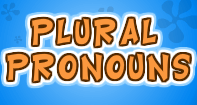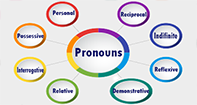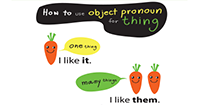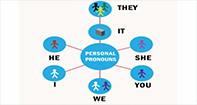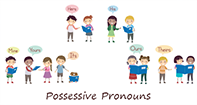Change Avatar
Possessive Pronouns
Possessive Pronouns
What Are Possessive Pronouns?
Take a look at the picture below to get a quick idea of examples:
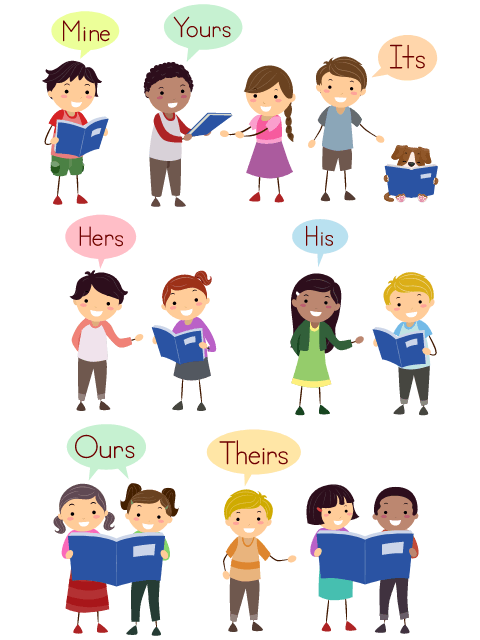
How Do They Relate to Subject Pronouns?
| Subject Pronoun | Possessive Pronoun | Example sentence |
|---|---|---|
| I | mine | I told you the blue shirt is mine. |
| you | yours | Yours is the one with the red ribbon. |
| he | his | The button-down plaid in green is his. |
| she | hers | Hers is the necklace with the diamond pendant. |
| it | its | The bowl with the cartoon dog is its. |
| we | ours | The minivan parked on the road is ours. |
| they | theirs | The truck sitting in the driveway is theirs. |
When Do You Use Possessive Pronouns?
Like most pronouns, possessive pronouns are used to make sentences more concise and less repetitive. Once a noun is named, you don’t need to continue repeating it when a pronoun can take its place. Check out the examples below:
- Those are my pens in the cup. They are not your pens.
- Those are my pens in the cup. They are not yours.
In this case, yours easily functions in the second sentence as a possessive pronoun replacing your pens.
- I forgot to bring my shoes to the game, so the coach lent me his shoes.
- I forgot to bring my shoes to the game, so the coach lent me his.
This one’s a bit more tricky because it’s the same word - his. In the second sentence, the possessive pronoun his replaces the possessive adjective and direct object (shoes) as his.
Eventually, you’ll learn to see them in every sentence:
- Your dog’s food is stinky, even more than ours.
- My car won’t start and I have to get to work. Can I borrow yours?
- My baby sister destroyed my notebook, so Siobhan gave me some paper from hers.
QUICK TIP!
Don’t get possessive pronouns confused with possessive adjectives. Possessive adjectives (my, your, his, her, its, our, your, their) are determiners in front of a noun to describe to whom something belongs. For example, “That’s my pencil” uses my - a possessive adjective - and appears before the noun pencil, but “That pencil is mine” uses mine - a possessive pronoun - replaces the pencil showing ownership.
| Subject Pronoun | Possessive Pronoun | Possessive Adjective |
|---|---|---|
| I | mine | my |
| you | yours | your |
| he | his | his |
| she | hers | her |
| it | its | its |
| we | ours | our. |
| they | theirs | their |




